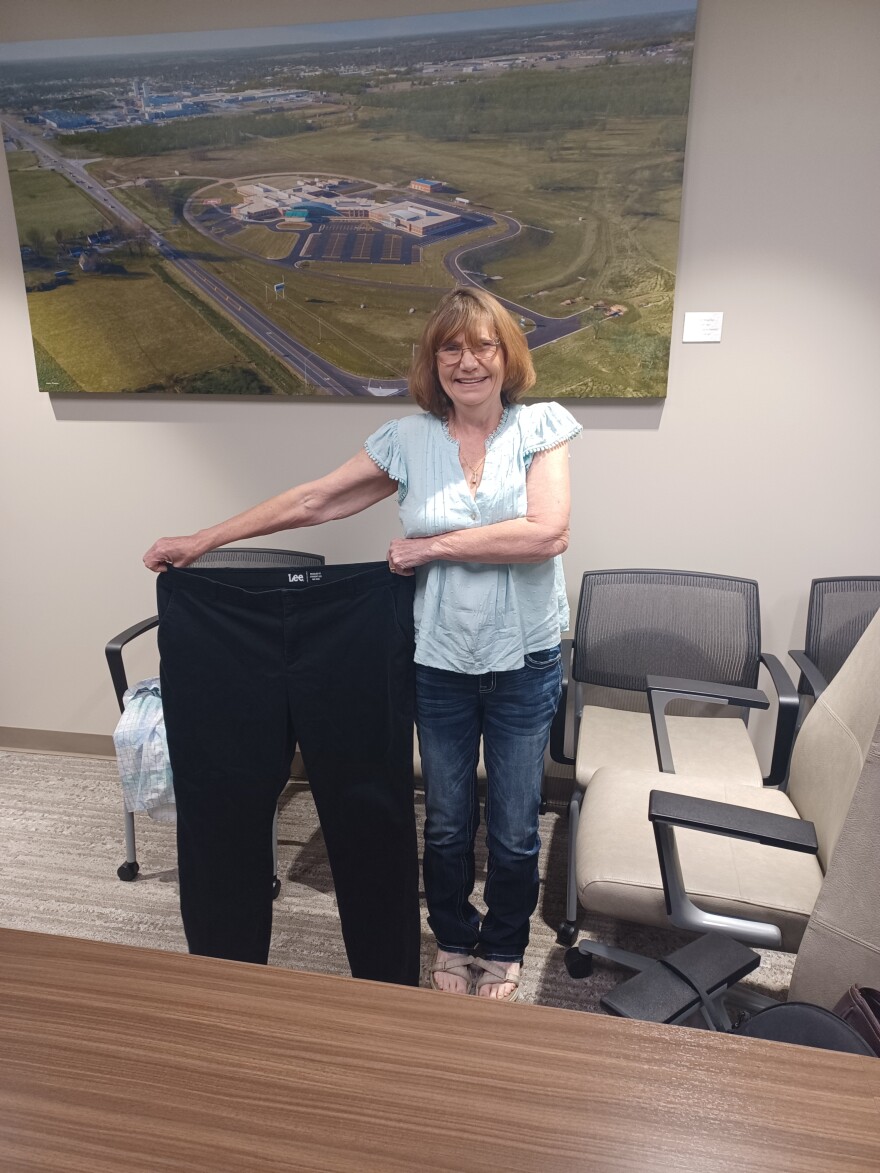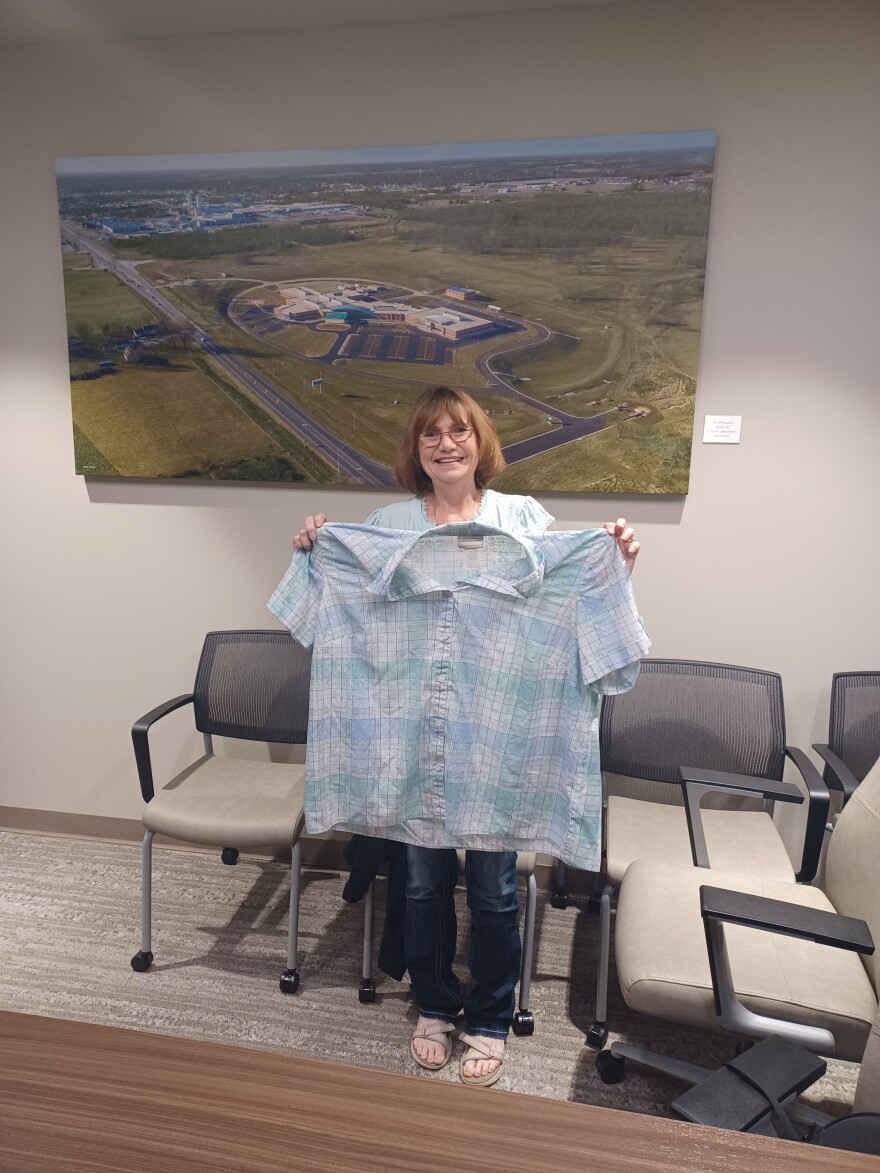A lot of people in the United States have type 2 diabetes. The serious chronic illness affects 30.3 million Americans, and each year around 38,000 people in Missouri are diagnosed with it. It’s the seventh leading cause of death in the state.
And at least one in three Missourians has prediabetes – a serious condition that causes higher than normal glucose levels – and they don’t even know it, according to the Missouri Department of Health and Senior Services. Prediabetes puts a person at risk of developing type 2 diabetes, heart disease and stroke.
As KSMU’s Sense of Community Series looks at the reasons behind the drop in Missouri’s life expectancy, we travel to Monett, a town of 9,789 people about 45 miles west of Springfield.
Ellen Bremer lives there. The 65-year-old weighed 230 pounds at the beginning of last year. Her doctor told her she had prediabetes and was at risk of developing diabetes – a disease that killed both her parents. The Mercy physician referred Bremer to the Diabetes Prevention Program or DPP at Cox Monett Hospital.
"And I told my husband — I said, 'I've done every weight loss program and I always, it never works. Within six months I've gained the weight back,' and I haven't this time," she said.
So far, Bremer has lost almost 90 pounds. More on how she did that in a bit, but first – a look at what’s going on in Monett.

Bai Jong is a Community Health Fields specialist with the University of Missouri Extension, collaborating with Cox Hospital Monett as a lead coach for the DPP. She says the Monett community, as well as Barry and Lawrence Counties, have a diabetes prevalence rate higher than the Ozarks Health Commission Region as well as the state and the nation at 12.5 percent. That’s according to the 2022 Monett Community Health Needs Assessment.
"And so that is a priority to our health community and also as educators and, you know, in the healthcare system...what we really want to do is prevent that and prevent those rates from going higher," she said.
Jong encourages community members to sign up for the free 26-week diabetes prevention program. She said participants meet intensively for the first 16 weeks, then bi-weekly for three months and then monthly for three months. There are around 16 participants in the current class.
"We do modules. We have guest speakers come and talk to them," she said. "We have great guest speakers and resources all over Monett, and so, they bring in a very good perspective on how to have, like, you know, better mental health mentality when it comes to making lifestyle changes because, you know, preventing those chronic illnesses — it's not a simple fix. We focus on those small changes that we can make everyday for that big change in the end and that is to prevent type 2 diabetes."
Jong, whose second language is English, is Hmong – and she works to educate the Hmong people of southwest Missouri as well as the Monett community as a whole.
The language barrier can be a problem when trying to get people to think about their health, and that’s an area where Jong is able to make a difference.
"With them knowing that there's a person like them working in, like, the hospital, they're more comfortable with talking to you about the issues that they have," she said, "you know, what their health problems are and, like, what do they need to do?"
Her colleague Laura Silva is a bilingual community educator and a community health worker at CoxHealth in Monett.
Silva was born and raised in the area, and her parents are immigrants – they moved to the U.S. from Mexico with Silva’s two sisters who are now nurses.
She said educating the community about diabetes is vital, so people can at least work to delay the onset.
"Because there are factors that inevitably we cannot change such as our ethnicity...where we come from, that type of aspect," she said. "The social determinants of health of where we live — those are some aspects that, unfortunately, we cannot change."
Monett has a large Hispanic population. According to the U.S. Census Bureau, the city’s population in 2022 was 78.6 percent white, 27.8 percent Hispanic or Latino, 3 percent American Indian and Alaska Native, 1.6 percent Asian and 0.1 percent Black.
According to the Centers for Disease Control and Prevention, U.S. adults have a 40 percent chance of developing type 2 diabetes. But if you’re a Hispanic or Latino adult, the chance you’ll get type 2 diabetes is 50 percent. And diabetes in Hispanic and Latino people leads to higher rates of kidney failure and diabetes-related vision loss.
Silva said she’s not seeing lack of access to care among the Hispanic community in Monett, but lack of knowledge about how to seek healthcare.
"Where do I necessarily start that conversation of going to a clinic? Will they take me if I'm low income or uninsured? And so, we do have resources that allow people to go to these clinics that serve underserved and uninsured patients and members of the community," said Silva, "and from there they have that opportunity to see where their A1C levels are, other lab work done."
From there, she said, they can be referred to additional places for care like CoxHealth, Mercy or Clark Mental Health Center. Silva says behavioral healthcare is vital, too, in the fight against diabetes.
"That's another part that, believe it or not, it influences and correlates to a chronic disease such as diabetes," said Silva.

Back to Ellen Bremer – who’s lost nearly 90 pounds since going through the CoxHealth Monett Diabetes Prevention Program.
Bremer said she took what she learned to heart – she didn’t want to end up in a wheelchair because of diabetes. Her doctor said there’s still a chance she could develop diabetes due to family history, but her A1C levels – which indicate the amount of glucose in a person’s blood -- are down.
She started seeing results as soon as she changed her diet and began exercising.
"I listened to a lot of what they said. I really tried to do that," said Bremer. "I gave up sweets, candy, and now I add it back in as I want it, but there for a long time I was really strict with that."
Besides cutting out carbohydrates as much as possible, Bremer began eating a lot of vegetables.
"I have a big salad. I make a bowl of salad twice a week, and I eat on that," she said. "I have (it) with every meal. Half of my plate is the salad. Sometimes like I'll fix a meal of roast and potatoes and stuff. My family will eat that. I'll eat the roast for the protein and just a salad."
For exercise, she takes a seated yoga class, and she gets out and walks. She tries to get in as many steps a day as she can. When it’s rainy or cold outside, she’ll take her laundry to where it goes in the home one piece at a time.
Jong offers this advice for anyone worried about their health: Acknowledge how your body feels, and get screened. The sooner you know that you have prediabetes, the sooner you can work to prevent diabetes.




